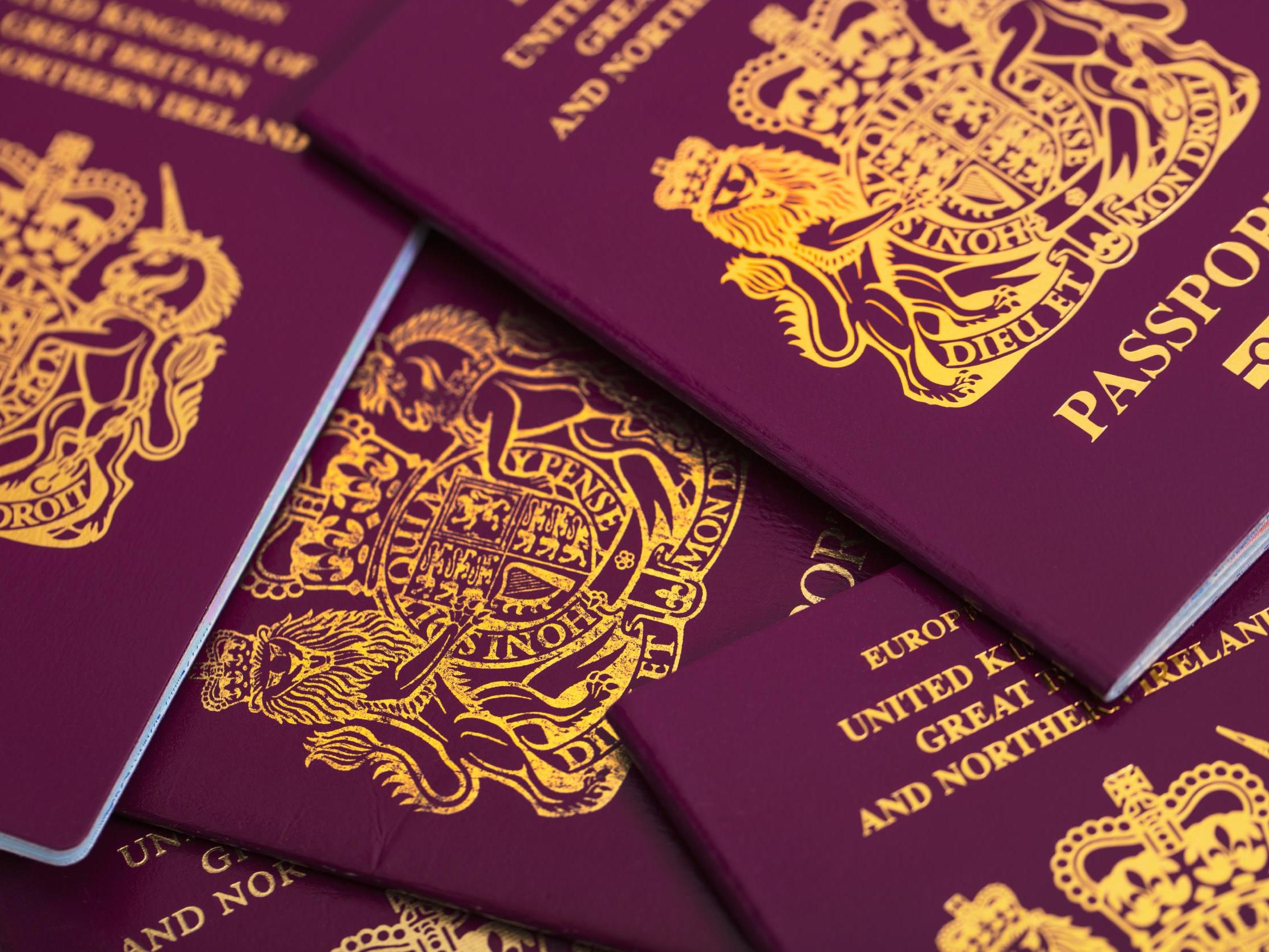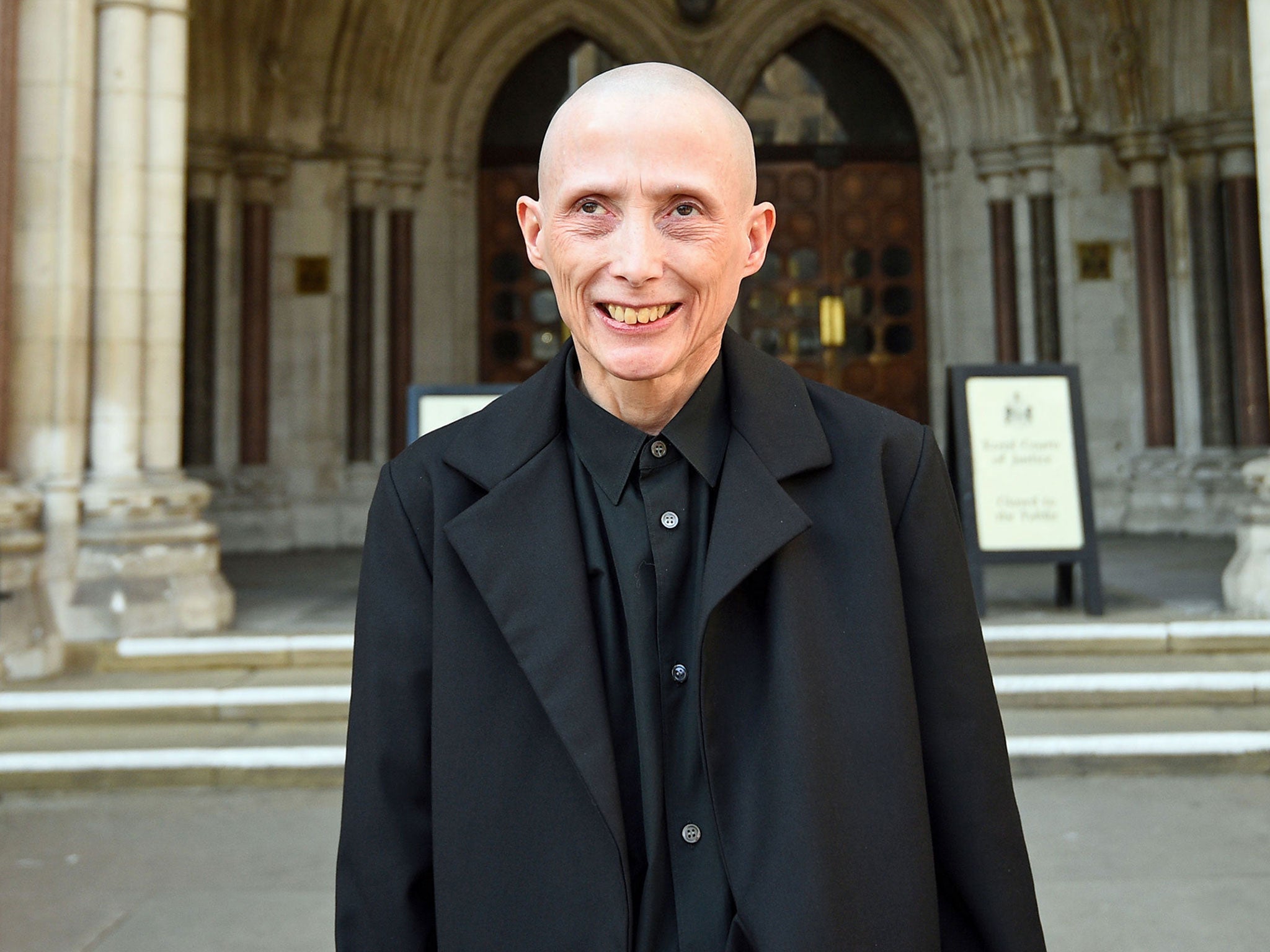High Court rules UK's refusal to grant gender-neutral passports not unlawful
Judge warns government that it must consider if listing gender or sex on official documentation is ‘justified’ as part of internal review

Your support helps us to tell the story
From reproductive rights to climate change to Big Tech, The Independent is on the ground when the story is developing. Whether it's investigating the financials of Elon Musk's pro-Trump PAC or producing our latest documentary, 'The A Word', which shines a light on the American women fighting for reproductive rights, we know how important it is to parse out the facts from the messaging.
At such a critical moment in US history, we need reporters on the ground. Your donation allows us to keep sending journalists to speak to both sides of the story.
The Independent is trusted by Americans across the entire political spectrum. And unlike many other quality news outlets, we choose not to lock Americans out of our reporting and analysis with paywalls. We believe quality journalism should be available to everyone, paid for by those who can afford it.
Your support makes all the difference.The High Court has dismissed a legal challenge against the UK’s refusal to grant gender-neutral passports.
Campaigners argued the current application process, which requires people to list themselves as male or female, was unlawful.
But a judge rejected claims that the policy is “inherently discriminatory” and breaches the European Convention on Human Rights (ECHR).
Mr Justice Jeremy Baker said: “At present I am not satisfied, for the reasons which I have set out, that the current policy of HM Passport Office is unlawful.”
But the judge stressed that the ECHR was subject to interpretation in light of changing conditions, and that the situation could change in Britain and after the government’s ongoing review of passport gender markers.
Justice Baker said all government departments will need to make a clear distinction between the concepts of sex and gender and “consider to what extent if any, in an age of increasing social and legal awareness and acceptance of the importance of issues relating to diversity and equality, the recording of an individual’s sex and/or gender in official and other documentation is justified”.
Christie Elan-Cane, who campaigns to achieve legal and social recognition for non-gendered identity, was supported by Human Rights Watch in the challenge.

“I am bitterly disappointed that my case for the judicial review of the UK government’s discriminatory passport policy was not upheld – not just for myself but for everyone who is compromised by this policy,” the campaigner said.
“I was seeking to be treated as a human being. I was seeking to not be forced into making a false declaration on my passport application.”
“X” or unspecified passports are already available in countries including Australia, Canada, New Zealand, India, Pakistan and Malaysia, and are recognised by the UK Border Force and International Civil Aviation Organisation.
Elan-Cane said the government’s current position “refuses to accept that my identity is legitimate, authentic and valid … the wider issue of non-gendered identity has been ignored for too long”.
The claimant said non-gendered people suffer “social exclusion” and restrictions in access to documentation, healthcare, employment and even public bathrooms, adding: “Despite today’s ruling, the tide of history is turning and for many people the change cannot come soon enough. We cannot wait any longer. The time for change is now. The time for ‘X’ passports is now.”
At the start of the judicial review in April, Kate Gallafent QC told the High Court that Britain’s current policy breaches the right to respect for private life and the right not to be discriminated against on the basis of gender or sex.
She told Justice Baker that the impact of the passport office’s refusal to provide X passports “affects not only non-gendered persons such as the claimant, but a broad section of the public”, including intersex and transgendered people and other individuals with gender dysphoria.
The lawyer asked for the High Court to quash the practice, comparing it requiring a person of Asian ethnicity to “declare their ethnicity to be either ‘white’ or ‘black’, or requiring a bisexual person to declare their sexual orientation to be either ‘heterosexual’ or ‘homosexual’”.
Lawyers representing the home secretary argued that the case should be dismissed and said Britain’s policy does not affect ECHR rights.
A written submission from James Eadie QC claimed that any interference with the right to respect for private life would be justified by the need to “maintain an administratively coherent system for the recognition of gender”, ensure security and combat identity theft and fraud.
He said that any change would incur “significant administrative and financial costs” to HM Passport Office and have a far wider impact.
More than 70 MPs from all parties supported a motion tabled by Liberal Democrat Norman Lamb last year calling on the government to bring in X passports.
“People are compromised and diminished as a result of inappropriate gender references on their personal identity information,” it read.
“The current discriminatory policy denies non-gendered and bi-gendered people a legitimate identity.”
Join our commenting forum
Join thought-provoking conversations, follow other Independent readers and see their replies
Comments